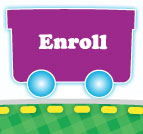


Research has proven that children who interact with warm, caring, responsive adults tend to thrive and show more resilience in later life. Because early interactions directly affect the way a child’s brain develops, warm and responsive care appears to help a child handle ordinary stresses, and prepares them for the effects of stress or trauma later in life.
The goal of staff at Early Education Station is create a “School Family.” We want all children, families and staff members to build connections which will promote cooperation and responsibility. Our “school family” is created through routines, rituals, and structures. With this feeling of family and safety, children will be most able to have a willingness to learn, develop impulse control, and increase attention. Our discipline program is based on trust, encouragement and meaningful contributions, not coercion, fear and external rewards.
In general terms, our goal is to create classroom environments that do the following:
- Provide children and adults with the opportunity to see themselves as part of a school family that is an extension of the home family. We do this by creating a “Friends and Family Board” (pictures of our loved ones) and having “School Family Rituals” (daily activities which wish others well) within the classroom.
- Provide systems where children can celebrate successes, achievements or events that they consider important. We do this by “School Family Rituals” and having a “Celebration Center” (a place where children and adults can honor each other.)
- Provide children and adults with many images showing expected behavior. This is done by “Visual Rules and Routines” (pictures of what expected behavior and safety looks like) and “Ways to be Helpful” board (visual images of how children can help each other and the classroom safe.”
- Provide children and adults an opportunity to change negative inner states into positive thoughts. These positive thoughts are encouraged by “Brain Smart Start” (songs that connect children and decrease stress) and “Safe Places” (a location where a child can go to be away from others to calm themselves, such as a privacy cube.)
- Provide adults and children a system in which hurtful interactions can be utilized to teach social life skills. Positive life skills are promoted by “Class Meetings” (group meeting where children feel safe enough to celebrate, connect and solve problems) and “Time Machine” (asking children to go back in time and re-do a hurtful exchange using new language.)
- Provide children the opportunity to support and care for one another. These opportunities are created by “School Family Rituals,” “Ways to be Helpful” and “We Care Center” (location where children can create notes or pictures for loved ones they are missing or who are ill.)
- Provide children with the opportunity to contribute to and be responsible for the safe, smooth running of the classroom. These opportunities are created by the “Job Board” (location which shows a job for each child so they feel important and a part of the group) and the “Safekeeper” (the job of the teacher which is to keep everyone safe.) All rules revolve around safety, both physical and emotional.
These structures within our classrooms provide unique opportunities to meet the needs of all children. The structures also help children begin to learn self-regulation by managing their own thoughts, feelings and actions.
© 2012 Early Education Station | website design by ka-king designs






